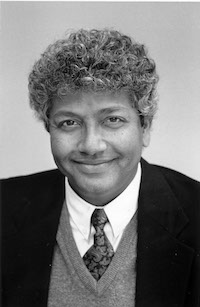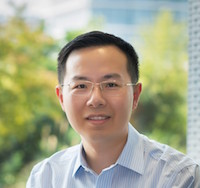Keynotes
 Keynote speaker: Prof. Mahadev Satyanarayanan (Carnegie Mellon University)
Keynote speaker: Prof. Mahadev Satyanarayanan (Carnegie Mellon University)
Title: Edge Computing: a New Disruptive Force
Abstract: At the height of its success, Cloud Computing is yielding to Edge Computing. Why is this happening? What is the unique value proposition of Edge Computing? As real-world deployments of Edge Computing appear, how will the lives of end users be improved? What new applications and capabilities will they see? Based on my team's decade-long exploration of edge computing, I will share my insights on these questions. Of particular interest is a new class of "Wearable Cognitive Assistance" applications that lie at the intersection of edge computing, wearable devices and cognitive algorithms (e.g., computer vision, speech recognition, natural language processing). .
Bio: http://www.cs.cmu.edu/~satya/bio.html
 Keynote speaker: Dr. Jingren Zhou (Alibaba Group)
Keynote speaker: Dr. Jingren Zhou (Alibaba Group)
Title: Data Intelligence and Analytics at Alibaba
Bio:
Jingren Zhou is Vice President at Alibaba Group. He is responsible for driving Big Data development and business strategies at Alibaba Cloud Division. He manages the cloud engineering team to develop cloud-scale distributed computing platform, data analytic products, and various business solutions. He is also Head of the Search Division at Alibaba, leading the search engineering team to develop advanced techniques for personalized e-commerce and multimedia search, and provide best-in-class shopping experience at Alibaba's e-commerce platforms, including Taobao and Tmall. Prior to joining Alibaba, Dr. Zhou was partner engineering manager at Microsoft and researcher at Microsoft Research. His research interests include cloud-computing, distributed systems, and databases. Dr. Zhou received his PhD in Computer Science from Columbia University.
 Keynote speaker: Prof. Lin Zhong (Rice University)
Keynote speaker: Prof. Lin Zhong (Rice University)
Title: Time to Retire Linux (and C) in IoT Devices
Abstract:
As IoT devices welcome more powerful hardware, they are also embracing Linux, the operating system that have dominated systems from data centers to smartphones. By doing so, they also invite home the well-known problems with Linux and its kernel language C, yet without the abundance and redundancy of data centers or the large developer base of smartphones to cope with them. In this talk, we argue that IoT devices should look beyond Linux and rise up to the opportunities brought by modern systems programming languages. We will share our experience in developing an experimental operating system using Rust and in negotiating a new contract between the software and hardware that shifts complexity out of hardware and low-level software.
Bio:
Lin Zhong is Professor of Electrical & Computer Engineering with Rice University. He received his B.S and M.S. from Tsinghua University and Ph.D. from Princeton University. He has been with Rice University since September 2005. At Rice, he leads the Efficient Computing Group to make computing, communication, and interfacing more efficient and effective. He and his students received the best paper awards from ACM MobileHCI, IEEE PerCom, and ACM MobiSys (3), and ACM ASPLOS. He is a recipient of the NSF CAREER Award, the Duncan Award from Rice University, and the RockStar Award from ACM SIGMOBILE. More information about his research can be found at http://www.recg.org.
